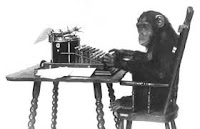There's an important study out by the Kennedy School’s Shorenstein Center on Media, Politics and Public Policy at Harvard that confirms what many of us saw as indisputable: the media failed us terribly in the 2016 election. There's a lot of data on how the media handled both Hillary Clinton and neo- fascist shitgibbon Donald "Rump" Trump, but some of the general conclusions are worth a lengthy excerpt (the entire study is worth a read):
The real bias of the press is not that it’s liberal. Its bias is a decided preference for the negative. As scholar Michael Robinson noted, the news media seem to have taken some motherly advice and turned it upside down. “If you don’t have anything bad to say about someone, don’t say anything at all.” A New York Times columnist recently asserted that “the internet is distorting our collective grasp on the truth.” There’s a degree of accuracy in that claim but the problem goes beyond the internet and the talk shows. The mainstream press highlights what’s wrong with politics without also telling us what’s right.
It’s a version of politics that rewards a particular brand of politics. When everything and everybody is portrayed as deeply flawed, there’s no sense making distinctions on that score, which works to the advantage of those who are more deeply flawed. Civility and sound proposals are no longer the stuff of headlines, which instead give voice to those who are skilled in the art of destruction. The car wreck that was the 2016 election had many drivers. Journalists were not alone in the car, but their fingerprints were all over the wheel. [snip]
False equivalencies abound in today’s reporting. When journalists can’t, or won’t, distinguish between allegations directed at the Trump Foundation and those directed at the Clinton Foundation, there’s something seriously amiss. And false equivalencies are developing on a grand scale as a result of relentlessly negative news. If everything and everyone is portrayed negatively, there’s a leveling effect that opens the door to charlatans. The press historically has helped citizens recognize the difference between the earnest politician and the pretender. Today’s news coverage blurs the distinction. [snip]
An irony of the press’s critical tendency is that it helps the right wing. Although conservatives claim that the press has a liberal bias, the media’s persistent criticism of government reinforces the right wing’s anti-government message. For years on end, journalists have told news audiences that political leaders are not to be trusted and that government is inept. And when journalists turn their eye to society, they highlight the problems and not the success stories. The news creates a seedbed of public anger, misperception, and anxiety— sitting there waiting to be tapped by those who have a stake in directing the public’s wrath at government.There's nothing more corrosive than cynicism in politics and nothing that better characterizes the "business model" of the Republican Party over the past 40 years than its creating, nourishing, and benefiting from that cynicism.
In another long read excerpt, Rick Perlstein amplifies the finding with specifics:
Trump boogied his way to Pennsylvania Avenue to the tune of the extraordinary finding by a Washington Post-ABC News poll that “corruption in government” was listed by 17 percent of voters as the most important issue in the presidential election, second only to the economy, and ahead of terrorism and health care—and that voters trusted Trump over Clinton to be better on the issue by a margin of 48 to 39 percent, her worst deficit on any issue. This is the part of my article where rhetorical conventions demand I provide a thumbnail sketch of all the reasons why it’s factually absurd that anyone would believe that Donald Trump is less corrupt than Hillary Clinton. I have better things to do with my time than belabor the obvious.
Yet somehow, the great mass of Americans believed Clinton was the crook. Might it have something to do with the myriad articles like, say, “Smoke Surrounds the Clinton Foundation,” by The Los Angeles Times’s top pundit Doyle McManus? This piece, all too typically, despite endeavoring to debunk Trump claims of Clinton corruption, repeated charges like “Doug Band, who helped create the Clinton Global Initiative, sought access to State Department officials for Clinton Foundation donors”—even though donors did not get that access). And that donors harbored the “assumption” that they would “move to the head of the line”—even though they never did.
And what were pundits like McManus smoking? The vapors from a cunning long-term disinformation campaign run by the man Donald Trump appointed as his chief White House political strategist. Steve Bannon chartered a nonprofit “Government Accountability Institute,” whose president, Peter Schweizer, hacked out an insinuation-laden tome, Clinton Cash: The Untold Story of How and Why Foreign Governments and Businesses Helped Make Bill and Hillary Rich, then offered its “findings” on an exclusive pre-publication basis to the Times, which shamefully accepted the deal—with, predictably, the public’s perceptions of Clinton’s trustworthiness cratering in tandem with our national Newspaper of Record’s serial laundering of Steve Bannon’s filth.So, here we are with Rump and the Republicans in charge of the government they so want to break even further. Thank a "journalist!"
BONUS: Driftglass has a good read on how the media ignored the successes of the Obama Administration in the manufacturing sector.
(h/t LGM)

No comments:
Post a Comment